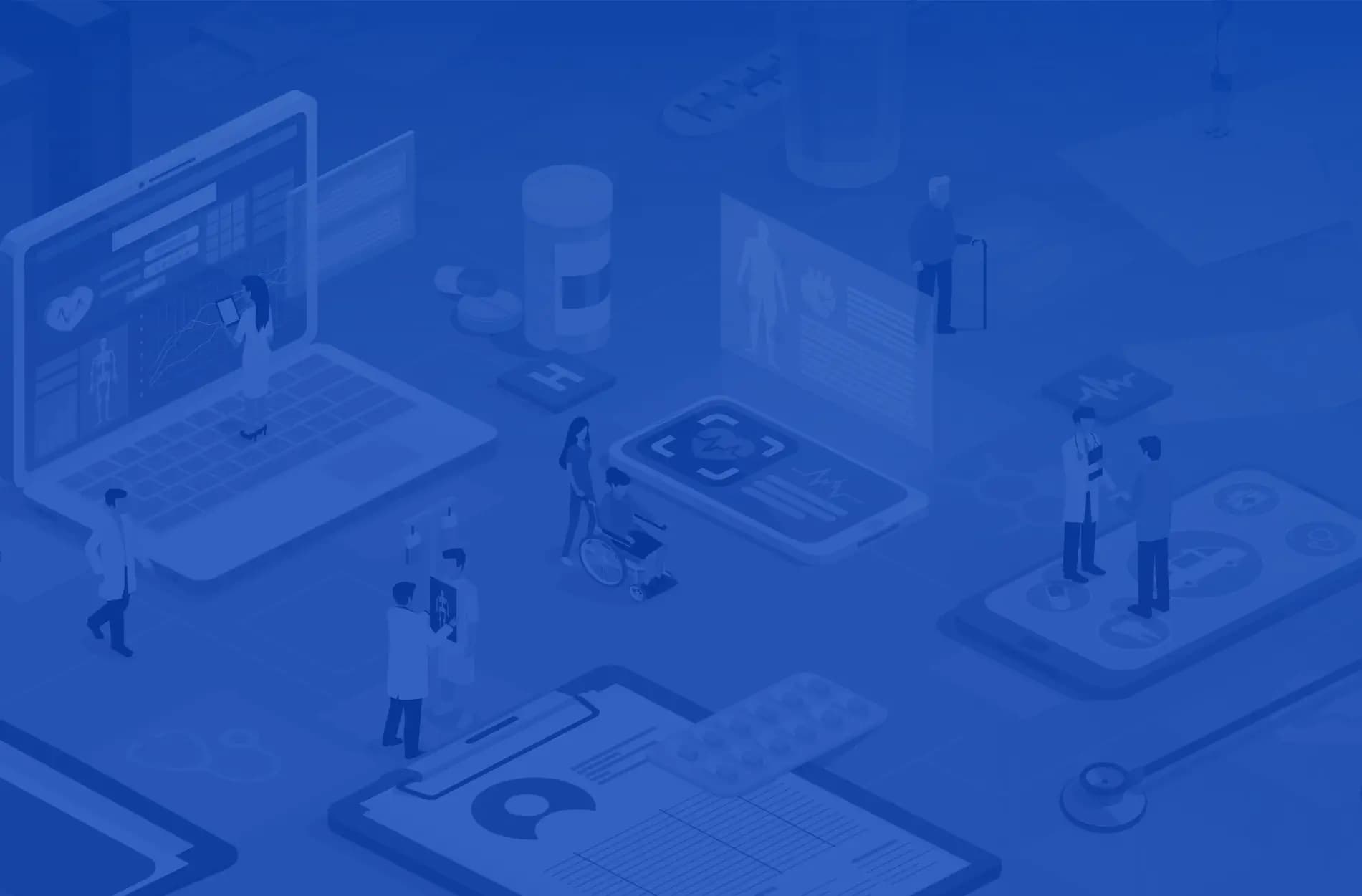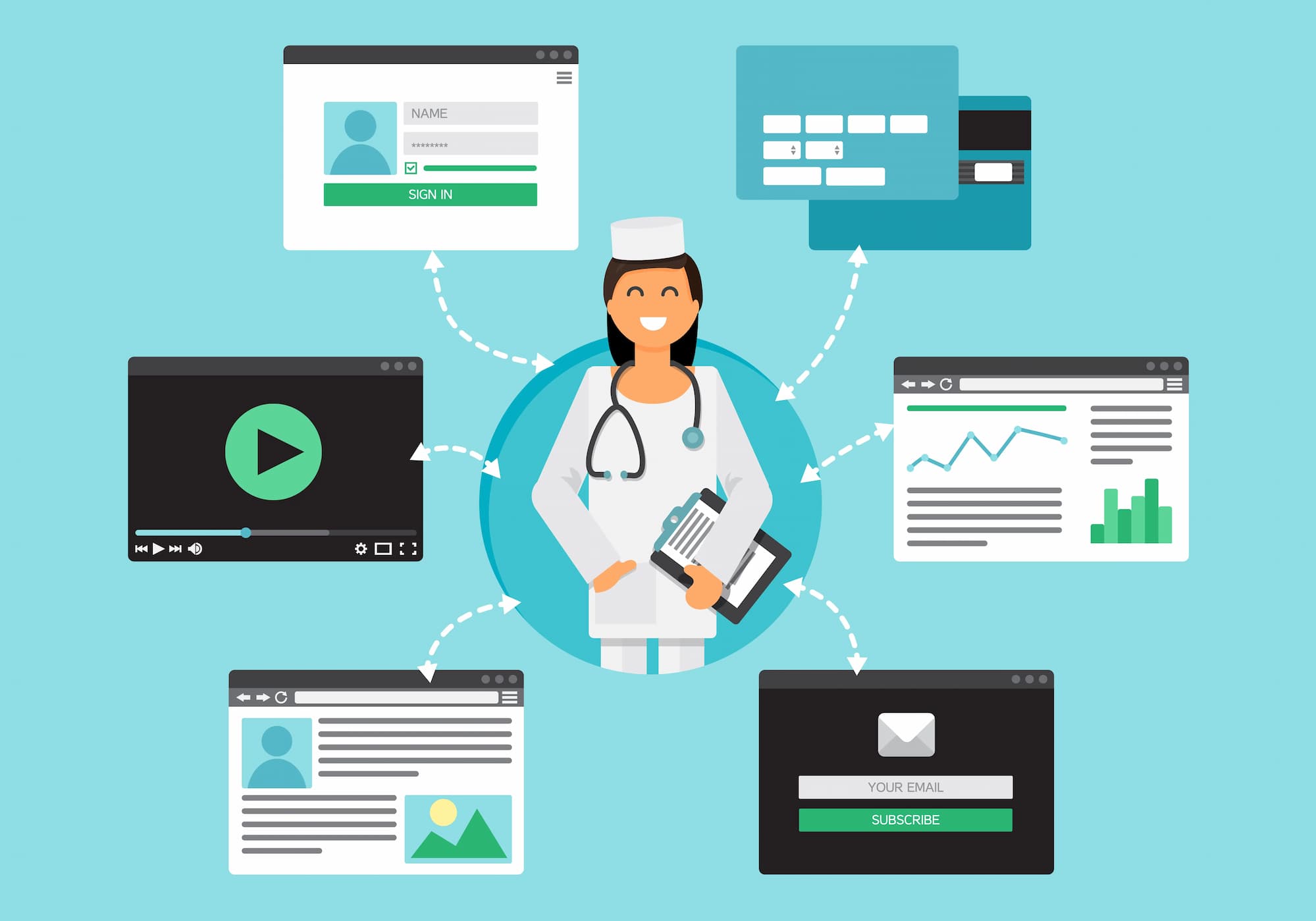
5 min read
Pharma Engagement: Omnichannel Software in Healthcare
This text delves into the transformative impact of Healthcare Omnichannel Software Development, spotlighting its ability to revolutionise how pharmaceutical companies engage with both doctors and patients. Explore the possibilities, benefits, and varied software solutions that underpin this dynamic approach, shaping a personalised experience for healthcare professionals and patients alike.
TL;DR
The text underscores the vital role of Healthcare Omnichannel Software Development in addressing the evolving challenges faced by pharmaceutical companies in effectively engaging doctors and patients. Emphasising the need for seamless interactions across digital channels, platforms, and devices, the text explores how omnichannel software enhances customer satisfaction and engagement in the pharmaceutical industry. The benefits, software solutions, and possibilities of healthcare omnichannel are detailed, highlighting the transformative impact on personalised experiences for healthcare professionals and patients.
Revolutionising Pharma Engagement
In the ever-evolving healthcare landscape, pharma companies are facing new challenges when it comes to effectively engaging doctors and patients. The traditional methods of outreach and engagement are no longer enough to cut through the noise in a crowded marketplace. This is where Healthcare Omnichannel Software Development steps in as a game-changer.
The pharmaceutical industry is no stranger to the importance of reaching, marketing, selling, and serving customers effectively. However, in today's digital age, it's essential to do this seamlessly across all channels, platforms, and devices. This is where omnichannel software development comes into play. It empowers pharma companies to build a unified experience that not only boosts customer satisfaction but also enhances engagement.
Imagine being able to increase profits by having the right tools available to the customers wherever they are. With the power of omnichannel, you can finally reach customers on all devices, push your content across multiple channels, analyse your results, and adjust your omnichannel strategy automatically.
The Benefits of Healthcare Omnichannel Software Development
Personalisation: Healthcare omnichannel software development allows pharma companies to reach their most valuable users and customers with the right content, regardless of the device or location. It unifies content management systems, enabling companies to launch pages and publish new content with blazing speed, all while delivering personalised experiences that match the customer's journey. For doctors and patients, this means tailored and relevant information is provided seamlessly.
Automated Campaigns with Custom Content: The ability to get content in front of your customers in a timely and personalised way is a game-changer. It enhances marketing automation efforts, maximising customer engagement across channels. The software allows you to adapt your messages based on customer interactions, ensuring that your content is always relevant and engaging. For pharma companies, this translates to higher engagement with doctors and patients, leading to better outcomes.
Advanced Analytics and Campaign Insights: With healthcare omnichannel software development, you gain access to advanced analytics and campaign insights. It means having a centralised overview of your cross-channel strategies, the ability to analyse cross-channel data and extract relevant information to build advanced reports. With this valuable data, pharma companies can decide what content to push, where to reach their customers best, and ultimately, improve conversions.
Enhancing Engagement with Doctors and Patients
Pharma companies often struggle with connecting with healthcare professionals and patients in a meaningful way. Healthcare omnichannel software development is the bridge that can bring them closer. It enables personalised and timely interactions, ensuring the right content is delivered to the right audience.
For doctors, this means staying updated on the latest research, drug information, and treatment options. They can access this information seamlessly, leading to better-informed decisions. Patients, on the other hand, can receive tailored information about their conditions, treatment plans, and medication, leading to better adherence and health outcomes.

What are the possibilities of software in Healthcare Omnichannel?
Healthcare omnichannel software development is not just a technological advancement; it's a vital tool for pharma companies to engage doctors and patients effectively. By providing a seamless and personalised experience, it transforms the way information is delivered and received.
Pharma companies that embrace this technology can enjoy increased engagement, improved outcomes, and, most importantly, a stronger bond with the healthcare community. So, if you're in the pharma industry, it's time to explore the possibilities of healthcare omnichannel software development and elevate your engagement strategies to the next level. Your doctors and patients will thank you for it.
The kinds of software in Healthcare Omnichannel
To provide more detailed information, let's delve into the kinds of software used in Healthcare Omnichannel Software Development:
- Content Management Systems (CMS): Content management systems are the backbone of healthcare omnichannel software. These systems enable pharmaceutical companies to create, organise, and deliver content efficiently. With a robust CMS, you can manage vast content, including medical articles, research papers, drug information, patient resources, and more. The CMS ensures content is easily accessible, up-to-date, and tailored to different audiences.
- Customer Relationship Management (CRM) Software: CRM software is critical for maintaining strong relationships with doctors and patients. It helps pharma companies track interactions, preferences, and engagement history, allowing for personalised communication. CRM systems enable targeted outreach and help tailor content based on the individual needs of healthcare professionals and patients.
- Marketing Automation Tools: Marketing automation software is instrumental in delivering content to the right audience at the right time. Pharma companies can create automated campaigns that send relevant content to healthcare professionals and patients based on their interactions and preferences. These tools help maintain engagement by ensuring the content remains timely and valuable.
- Data Analytics and Business Intelligence Tools: Advanced analytics and business intelligence tools provide insights into the effectiveness of your omnichannel strategy. You can analyse data from various channels to understand which content resonates the most, where your audience engages the most, and how to improve your strategy. These insights are invaluable for optimising content delivery and increasing engagement.
- Mobile Apps and Web Platforms: A crucial part of healthcare omnichannel software is the development of mobile applications and web platforms. These apps and platforms provide doctors and patients with easy access to a wealth of information and services. They should be user-friendly, responsive, and capable of delivering a consistent experience across different devices.
- Artificial Intelligence (AI) and Machine Learning: AI and machine learning play a significant role in healthcare omnichannel software by enabling personalised content recommendations and predictive analytics. These technologies can assess user behaviour and preferences to suggest relevant content and optimise engagement strategies.
- Secure Data Management and Compliance Software: Security and compliance are paramount in healthcare, and software must adhere to stringent regulations. Secure data management and compliance software ensure that patient and medical information remains confidential and in line with industry regulations, such as HIPAA in the United States. It safeguards sensitive data, building trust with healthcare professionals and patients.
- Cross-Channel Integration: Successful healthcare omnichannel software seamlessly integrates multiple communication channels, such as email, social media, mobile apps, websites, and more. It ensures the content is coherent and consistent across all platforms, enhancing the user experience and engagement.
- Personalisation Engines: Personalisation engines use data and algorithms to deliver tailored content to individual users. For doctors, this might mean receiving research papers on specific medical specialities or drug developments. Patients could receive information about their conditions, treatments, and local healthcare services. Personalisation enhances engagement by making the content more relevant to the recipient.
In summary, healthcare omnichannel software development involves a combination of content management systems, customer relationship management tools, marketing automation, data analytics, mobile apps, AI, compliance measures, cross-channel integration, and personalisation engines. This diverse software ecosystem empowers pharmaceutical companies to create a unified, engaging, and personalised experience across various platforms and devices for doctors and patients.



